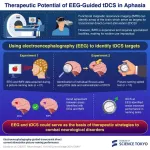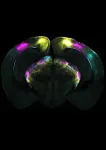(Press-News.org) WASHINGTON, D.C. — Research Policy Director Elizabeth Baker from the Physicians Committee for Responsible Medicine, a national medical ethics and health advocacy group of 17,000 physicians, spoke today, Feb. 6, at a Congressional hearing focused on ending federally funded animal cruelty in research.
The U.S. House Oversight and Government Reform Subcommittee on Cybersecurity, Information Technology, and Government Innovation Chairwoman Nancy Mace (R-S.C.) announced the hearing in a news release on Monday, with plans to evaluate current animal cruelty funded by the federal government and explore opportunities to prioritize technological alternatives that increase relevance to humans.
“To truly Make America Healthy Again, we need to make science human again.” Baker said.
“For generations, billions of federal dollars have paid scientists to conduct acts on dogs, cats, monkeys, rabbits and other animals that would shock the conscience of most Americans,” she continued.
Highlighting one particularly cruel NIH-funded study, Baker testified that “dogs have been subjected to multiple major surgeries, have devices stabbed into their hearts, and been forced to run on treadmills until they die. Despite 34 years of this work and hundreds of dead dogs, there has been no benefit to patients.”
Increasingly, it is recognized across research fields that animals are not good surrogates for humans especially when much better human-based models exist. The vast majority of Americans agree. Over 80% of more than 2,000 respondents polled in September 2024 in a Physicians Committee/Morning Consult survey agreed that animal-based research should be phased out in support of methods that do not use animals.
At the hearing, Baker asked U.S. lawmakers to end federal support for wasteful and ineffective animal research and reinvest part of the savings into human-based research approaches.
“Ending federally funded animal experiments is long overdue,” she said. “Both Congress and the Administration must take action to ensure that government funding and requests for animal experiments are stopped, and that instead, funding is reinvested into more effective human-based approaches.”
Baker presented the Subcommittee policy changes that can easily be made to curb cruel animal research and testing, including denying funding for National Primate Research Centers that house, breed, and experiment on monkeys, ending foreign research funded by NIH which operates without oversight, and prohibiting research – especially in human nutrition – where objectives can easily be met without using animals. Further, Baker called for the support of efforts already underway at NIH and other federal agencies to accelerate human-based research and testing.
For an interview with Baker or a copy of her written testimony to the Subcommittee, please contact Kim Kilbride at 202-717-8665 or kkilbride@pcrm.org.
Media Contact
Kim Kilbride
202-717-8665
kkilbride@pcrm.org
Founded in 1985, the Physicians Committee for Responsible Medicine is a nonprofit organization that promotes preventive medicine, conducts clinical research, and encourages higher standards for ethics and effectiveness in education and research.
END
Physicians committee research policy director speaks today at hearing on taxpayer funded animal cruelty
Nonprofit asked lawmakers to end federal support for animal research and reinvest savings into human-based models
2025-02-06
ELSE PRESS RELEASES FROM THIS DATE:
New technology lights way for accelerating coral reef restoration
2025-02-06
COLUMBUS, Ohio – Scientists have developed a novel tool designed to protect and conserve coral reefs by providing them with an abundance of feeding opportunities.
The device, dubbed the Underwater Zooplankton Enhancement Light Array (UZELA), is an autonomous, programmable underwater light that works to draw in nearby zooplankton, microscopic organisms that coral feed on.
After testing the submersible on two species of coral native to Hawaii over six months, researchers found that UZELA could ...
Electroencephalography may help guide treatments for language disorders
2025-02-06
Electroencephalography (EEG) may offer a more accessible alternative to functional magnetic resonance imaging (fMRI) for guiding transcranial direct current stimulation (tDCS) when treating aphasia. Researchers from Institute of Science Tokyo found an 80% agreement between EEG and fMRI in identifying brain regions activated during language tasks. Furthermore, EEG-guided tDCS improved picture-naming speed in participants, indicating its potential for innovative therapies in language disorders.
Many neurological disorders are directly linked to damage or deterioration in specific regions of the brain. For example, ...
Multinational research project shows how life on Earth can be measured from space
2025-02-06
Measurements and data collected from space can be used to better understand life on Earth.
An ambitious, multinational research project funded by NASA and co-led by UC Merced civil and environmental engineering Professor Erin Hestir demonstrated that Earth’s biodiversity can be monitored and measured from space, leading to a better understanding of terrestrial and aquatic ecosystems. Hestir led the team alongside University of Buffalo geography Professor Adam Wilson and Professor Jasper Slingsby from the University ...
Essential genome of malaria parasite Plasmodium knowlesi mapped
2025-02-06
Embargoed for release: Thursday, February 6, 2025, 2:00 PM ET
Key points:
Comprehensive genetic mapping of Plasmodium knowlesi, a zoonotic parasite that causes malaria, has revealed the genes required for malaria infection of the blood, and those driving drug resistance.
By identifying specific druggable targets and determinants of resistance, the map provides insights that could help the development of new therapeutics.
Boston, MA—A new, comprehensive map of all the genes essential for blood infections in Plasmodium knowlesi (P. ...
Ice streams move due to tiny ice quakes
2025-02-06
In brief:
• In Greenland, an international team of researchers led by ETH Zurich has discovered that countless tiny ice quakes take place deep inside ice streams.
• These quakes are responsible for the fact that ice streams also move with a continuous stick-slip motion and not only like viscous honey as previously considered.
• The researchers recorded seismic data from inside the ice stream using a fibre-optic cable in a 2,700-metre deep borehole.
The ...
Whale song has remarkable similarities to human speech in terms of efficiency
2025-02-06
Whale song can be as efficient as – and, in some cases, more efficient than – human communication, according to a new study in Science Advances. Meanwhile, new unrelated research in Science further investigates whale song’s adherence to a universal linguistic law, as observed in recordings of humpback whales.
Natural selection favors the pithy over the longwinded. For example, yelling “Duck!” is faster and far more effective than shouting “Be careful, there is an incoming projectile, and you need to move out of the way!” ...
Uncovered: How mice override instinctive fear responses
2025-02-06
Researchers have uncovered a neural mechanism in the brains of mice that enables them to override instinctive fear responses; dysfunction in this mechanism may contribute to inappropriate or excessive fear responses, they say. According to the findings, targeting these circuits could offer new therapeutic avenues for treating fear-related disorders like post-traumatic stress disorder and anxiety. Fear responses to visual threats, such as escaping from an approaching predator, are critical instinctive reactions for survival and are ...
A pathway that contributes to insulin resistance can be targeted, mouse study shows
2025-02-06
The hormone adrenomedullin disrupts insulin signaling in blood vessel cells, contributing to systemic insulin resistance in obesity-associated type 2 diabetes, according to a new study. Blocking adrenomedullin’s effects restores insulin function and improves glucose control in a mouse model, suggesting a potential new target for treating obesity-related metabolic disease. Diabetes is a leading global cause of illness, mortality, and healthcare expenditures, with most cases stemming from obesity-induced insulin resistance and type 2 diabetes mellitus. Insulin resistance primarily ...
Special Issue: The cryosphere
2025-02-06
In this Special Issue of Science, 3 Reviews and a Policy Forum highlight research on Earth’s frozen places – from the Arctic to the Antarctic – and how it’s changing due to climate change and the geopolitical challenges this important work faces. In the first Review, Julienne Stroeve and colleagues provide a preview of what the Arctic region may look like in a warmer world. Without stronger climate action, global temperatures are set to rise +2.7°C above preindustrial levels, ...
Scientists discover brain mechanism that helps overcome fear
2025-02-06
Researchers at the Sainsbury Wellcome Centre (SWC) at UCL have unveiled the precise brain mechanisms that enable animals to overcome instinctive fears. Published today in Science, the study in mice could have implications for developing therapeutics for fear-related disorders such as phobias, anxiety and post-traumatic stress disorder (PTSD).
The research team, led by Dr Sara Mederos and Professor Sonja Hofer, mapped out how the brain learns to suppress responses to perceived threats that prove ...
LAST 30 PRESS RELEASES:
Tiny bubbles, big breakthrough: Cracking cancer’s “fortress”
A biological material that becomes stronger when wet could replace plastics
Glacial feast: Seals caught closer to glaciers had fuller stomachs
Get the picture? High-tech, low-cost lens focuses on global consumer markets
Antimicrobial resistance in foodborne bacteria remains a public health concern in Europe
Safer batteries for storing energy at massive scale
How can you rescue a “kidnapped” robot? A new AI system helps the robot regain its sense of location in dynamic, ever-changing environments
Brainwaves of mothers and children synchronize when playing together – even in an acquired language
A holiday to better recovery
Cal Poly’s fifth Climate Solutions Now conference to take place Feb. 23-27
Mask-wearing during COVID-19 linked to reduced air pollution–triggered heart attack risk in Japan
Achieving cross-coupling reactions of fatty amide reduction radicals via iridium-photorelay catalysis and other strategies
Shorter may be sweeter: Study finds 15-second health ads can curb junk food cravings
Family relationships identified in Stone Age graves on Gotland
Effectiveness of exercise to ease osteoarthritis symptoms likely minimal and transient
Cost of copper must rise double to meet basic copper needs
A gel for wounds that won’t heal
Iron, carbon, and the art of toxic cleanup
Organic soil amendments work together to help sandy soils hold water longer, study finds
Hidden carbon in mangrove soils may play a larger role in climate regulation than previously thought
Weight-loss wonder pills prompt scrutiny of key ingredient
Nonprofit leader Diane Dodge to receive 2026 Penn Nursing Renfield Foundation Award for Global Women’s Health
Maternal smoking during pregnancy may be linked to higher blood pressure in children, NIH study finds
New Lund model aims to shorten the path to life-saving cell and gene therapies
Researchers create ultra-stretchable, liquid-repellent materials via laser ablation
Combining AI with OCT shows potential for detecting lipid-rich plaques in coronary arteries
SeaCast revolutionizes Mediterranean Sea forecasting with AI-powered speed and accuracy
JMIR Publications’ JMIR Bioinformatics and Biotechnology invites submissions on Bridging Data, AI, and Innovation to Transform Health
Honey bees navigate more precisely than previously thought
Air pollution may directly contribute to Alzheimer’s disease
[Press-News.org] Physicians committee research policy director speaks today at hearing on taxpayer funded animal crueltyNonprofit asked lawmakers to end federal support for animal research and reinvest savings into human-based models



